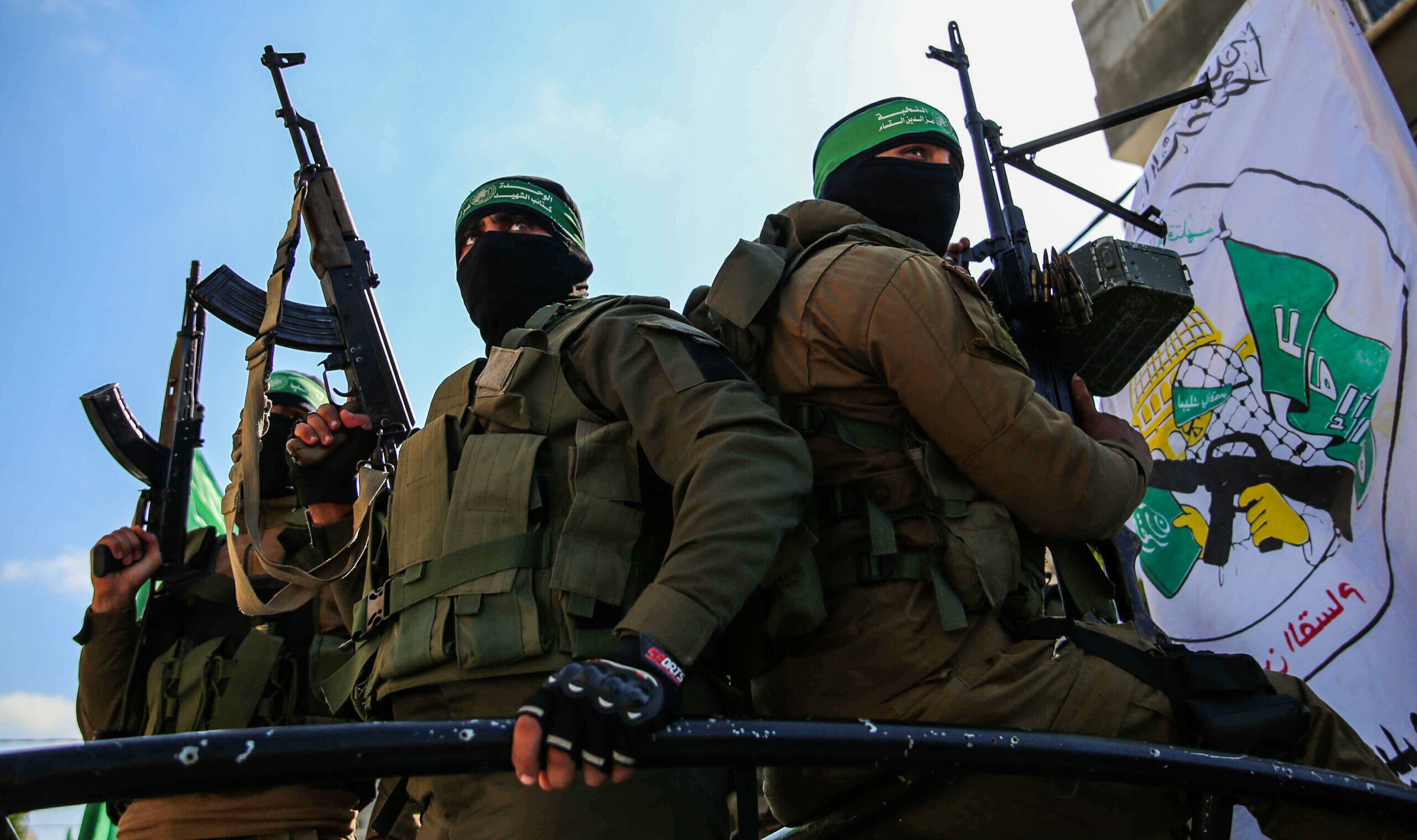Foreign Affairs
Iran’s Foolish Gambit
The Islamic Republic has made a possibly catastrophic error if it is behind the Palestinian attack on Israel.

It’s crazy, the kind of conversations you can be privy to on the app formerly known as Twitter. On Sunday, as the Israel Defense Forces were battling Hamas infiltrators in southern Israel and across the border with Gaza, I tuned into a Persian-language X “Space” titled, “Whose Eyes Were Burned by #Al-AqsaStorm?” The hashtag referred to Hamas codename for the terror operation that killed at least 700 Israelis, while subjecting many others to kidnapping and rape.
The organizers of the “Space” could fairly be described as supporters of the Iranian regime, many of them based inside the Islamic Republic: academics, business executives, and “influencers” of varying degrees of clout. Most had the current Iranian flag in their user handles, something opponents of the government would never do. And the mood, needless to say, was jubilant and bordering on the apocalyptic.
I say apocalyptic, because the speakers agreed that the Hamas assault was merely a harbinger of an impending “final battle” between Israel and the forces of muqavemat, or resistance, led by Iran. Alluding to then-Secretary of State Condoleezza Rice’s call for a “New Middle East” in 2006, one speaker said that the region is indeed undergoing a profound transformation, and when it’s over, “Israel can’t be part of the map.”
The second upshot from the conversation was the assumption, seemingly shared by everyone who spoke up, that Iran was the main driver of the weekend’s events. There might be an element of unmerited boasting in such claims, and as of this writing, the U.S. government has yet to confirm Iranian involvement; Hamas insists this was a homemade “Palestinian decision.” Still, the plan’s sophistication and Hamas’s heavy dependence on Tehran can’t but suggest an Iranian role.
The Wall Street Journal reported Sunday that “Iranian security officials helped plan Hamas’s Saturday surprise attack on Israel and gave the green light for the assault at a meeting in Beirut last Monday,” citing senior Hezbollah, Hamas, and Iranian officials. Al-Aqsa Storm, in this telling, was the first fruit of a long-term Iranian effort to bring all of its regional proxies—including Hamas, Hezbollah, and Palestinian Islamic Jihad—under a single unified command. Such a force would be able to squeeze Israel from every direction, including maritime assaults via the Mediterranean, as we saw over the weekend.
Or so the Iranians hope. In reality, they have likely started a fire that will burn their regional position to the ground before it’s quenched.
The Iranian decision is all the more tragic, given that the Middle East was heading toward a regional balance prior to last weekend. President Donald Trump’s Abraham Accords had forged once-unthinkable alliances between the Jewish state and several Arab states, making formal and explicit a convergence of anti-Iran interests between the two camps. At the same time, China, an important outside power with growing influence in the region, had mediated a rapprochement between Tehran and Riyadh. Resistance-bloc stalwart Syria, meanwhile, was quietly readmitted into the Arab state system over strenuous American objections. The situation was far from ideal from any one actor’s point of view, but it was stable.
Subscribe Today
Get daily emails in your inbox
So stable that the Israelis could afford to squabble over their unusually strong supreme court, the role of religion in public life, and the long—too-long, some would say—reign of Prime Minister Benjamin Netanyahu. The fact that such issues had eclipsed Israel’s more existential questions was testament that things were going pretty O.K., which is about as good as you can expect in the Middle East.
Then the Iranians apparently decided to gamble. Why now? It isn’t exactly clear yet. My hunch is that they miscalculated the regional and global balance of forces: The Ukrainian counteroffensive had failed, the BRICS (Brazil, Russia, India, China, South Africa) bloc had admitted Tehran, and Israel appeared internally divided. The role of ideology shouldn’t be understated, either: While the hawks of an earlier generation somewhat overstated this stuff, it remains true that a segment of the Iranian ruling class sees a “final” confrontation with the Great and Little Satans—America and Israel, respectively—as a prelude to Shiite rebirth. Another segment, as Arta Moeini has noted, sees stoking Arab anti-Israel sentiment as a strategic trump card as the Arab states become more pragmatic and developmentalist in their approach.
Whatever the motives, the results have been horrible already and will only get worse. A Persian expression that’s hard to translate goes: “This ‘I hope you die’ isn’t one of those usual ‘I hope you die’s.” Meaning: This insult or attack won’t easily be forgiven. I remember my grandmother saying that as she watched footage of the Twin Towers collapse on 9/11. I’m afraid it’s equally applicable to a moment Israelis view as their 9/11.
>>> Read full article>>>
Copyright for syndicated content belongs to the linked Source : The American Conservative – https://www.theamericanconservative.com/irans-foolish-gambit/










